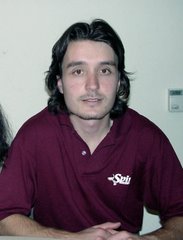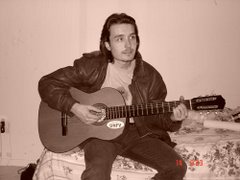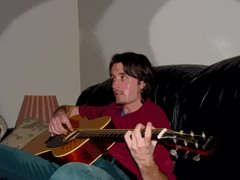Unfortunately, the WOW training programme has come to an end and all of us do not see each other as much as we used to. Yesterday, I had the chance to see both Susans and Maina at the interview at Brunswick. The interview went really well and I wish good luck to all my friends and colleagues with finding internships and good jobs.
In fact, since the training programme has finished, I have had mixed feelings. On the one hand, I am looking forward towards finding a good internship that might lead me to my desired career. In this regard, I think that very soon I will be faced with a great challenge and I am anticipating some positive results.
Yet, at the same time, I feel a little bit sad, because I am not seeing my friends every day as I used to. Unfortunately, life presupposes immediate changes to which you need to get used to and in most of the cases this is a difficult and painful transition. Personally, I feel as if part of me has died and I am not aware of whether the future would seem that bright for me.
In fact, I have always believed that social relationships define the course and formation of your personal identity and they help you understand yourself better. Participating in group activities and doing various exercises help you establish relationships with other people and in such a way they also help you understand what you could do together, what you could achieve together (as a team) and how as an individual you can contribute to the whole team. In other words, team-work and collective exercises help you understand essentially what you are capable of doing for yourself and for the other person.
And in fact, this has been the experience that I have been used to for this one month of intensive training. For me, this has been a route of self-rediscovery and self-transformation and through the interaction and communication with my team-members I have largely realised who I am, what I am capable of doing and where I am going. Thus, I have to say that all of my colleagues and friends have contributed to me finding a real sense and purpose in my own life. And for that, I am extremely grateful! That is why I will never forget you, guys!
However, thinking about the future is yet a painful feeling! I feel as if I have been driven between two extremes: my mind tells me that I will find a good job and I know that this would be a good thing; at the same time, my heart brings me back to my memories with my friends. Thus, I realise how much I miss them and how lonely I would feel again once we do not see each other. I keep asking myself the same questions: How could I be useful for my team again?; How could I give and show love and care to them if I do not see them?
And yet, I feel that the constraints of time, distance and personal engagements are very often difficult to overcome. As a result, people need to get used to the idea that time and distance separates people and those physical constraints accompany people constantly throughout their lives. And this thought and feeling scares me and I feel as if I am losing something that has largely become part of me.
Nevertheless, I believe one cannot blame life and nature for doing those things to you. Essentially, this is part of life!
Perhaps, we (our team) should start thinking of how we can keep this spirit alive and think about different ways of how we can maintain and even develop further the friendships and relationships that we have already developed. As Lesley pointed out earlier, this has been just the beginning!
And I believe this is how we should start thinking of ourselves-the 2007 WOW team: as if we are at the threshold of a new great initiative or project that we could together in the future; at the threshold of a new challenge or test in the treasure of life. Thomas suggested we should write a book about our experiences in the 2007 WOW training programme; Susan suggested that we should start a book-club and keep our discussions and spirit alive. And these are indeed great ideas!
However, I believe that we could be even more creative than that and extend the range of activities that could bring us back together as a team, back together as who we are TOGETHER. I really hope so and I am looking forward to see this happening in the near future! What do YOU think?
In fact, since the training programme has finished, I have had mixed feelings. On the one hand, I am looking forward towards finding a good internship that might lead me to my desired career. In this regard, I think that very soon I will be faced with a great challenge and I am anticipating some positive results.
Yet, at the same time, I feel a little bit sad, because I am not seeing my friends every day as I used to. Unfortunately, life presupposes immediate changes to which you need to get used to and in most of the cases this is a difficult and painful transition. Personally, I feel as if part of me has died and I am not aware of whether the future would seem that bright for me.
In fact, I have always believed that social relationships define the course and formation of your personal identity and they help you understand yourself better. Participating in group activities and doing various exercises help you establish relationships with other people and in such a way they also help you understand what you could do together, what you could achieve together (as a team) and how as an individual you can contribute to the whole team. In other words, team-work and collective exercises help you understand essentially what you are capable of doing for yourself and for the other person.
And in fact, this has been the experience that I have been used to for this one month of intensive training. For me, this has been a route of self-rediscovery and self-transformation and through the interaction and communication with my team-members I have largely realised who I am, what I am capable of doing and where I am going. Thus, I have to say that all of my colleagues and friends have contributed to me finding a real sense and purpose in my own life. And for that, I am extremely grateful! That is why I will never forget you, guys!
However, thinking about the future is yet a painful feeling! I feel as if I have been driven between two extremes: my mind tells me that I will find a good job and I know that this would be a good thing; at the same time, my heart brings me back to my memories with my friends. Thus, I realise how much I miss them and how lonely I would feel again once we do not see each other. I keep asking myself the same questions: How could I be useful for my team again?; How could I give and show love and care to them if I do not see them?
And yet, I feel that the constraints of time, distance and personal engagements are very often difficult to overcome. As a result, people need to get used to the idea that time and distance separates people and those physical constraints accompany people constantly throughout their lives. And this thought and feeling scares me and I feel as if I am losing something that has largely become part of me.
Nevertheless, I believe one cannot blame life and nature for doing those things to you. Essentially, this is part of life!
Perhaps, we (our team) should start thinking of how we can keep this spirit alive and think about different ways of how we can maintain and even develop further the friendships and relationships that we have already developed. As Lesley pointed out earlier, this has been just the beginning!
And I believe this is how we should start thinking of ourselves-the 2007 WOW team: as if we are at the threshold of a new great initiative or project that we could together in the future; at the threshold of a new challenge or test in the treasure of life. Thomas suggested we should write a book about our experiences in the 2007 WOW training programme; Susan suggested that we should start a book-club and keep our discussions and spirit alive. And these are indeed great ideas!
However, I believe that we could be even more creative than that and extend the range of activities that could bring us back together as a team, back together as who we are TOGETHER. I really hope so and I am looking forward to see this happening in the near future! What do YOU think?


